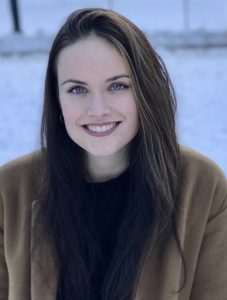Can Law Involve the Arts?
I spent the majority of my time in theaters growing up. I was a shy kid, but something about the stage brought me out of my shell. It may sound counterintuitive that acting in front of hundreds of strangers is what helped me get over my fear of public speaking, but it worked for me. Through performing I found my confidence, my voice, and above all else, my “niche.” By the time I graduated from high school I had been in dozens of local and regional shows and had thought seriously about pursuing a career in theater. However, when I went away to college I chose to instead pursue a political science degree. I set my long-term sights on attending law school, believing that being a litigation attorney was as close as I could get to “performing” professionally. I assumed my love for the creative arts would always be a hobby, but didn’t think it was a practical career path. Thankfully, I was wrong.
IP Insight: Law and the Arts Can Connect!

I began working as a medical paralegal at an asbestos litigation firm in New York after graduating college. The position gave me first-hand insight into the litigation process. I was able to watch the progression from client intake, to depositions, all the way up through trial. Watching attorneys give their opening statements was like watching a play. They were moving, dramatic, and expertly rehearsed. This experience confirmed by desires to become a litigator. However, the position required hours upon hours of scanning medical records, and as someone with little experience or interest in the medical field, I quickly realized that I wouldn’t be pursuing a career in personal injury litigation.
Roughly a year later, I learned about a job opening at an intellectual property boutique firm that specifically serviced the music industry. I was immediately interested. This was an opportunity to not only try my hand in another area of law, but also to be involved again with the arts (even if it wasn’t on the performance side). This interest didn’t come without fears. I was nervous that my Bachelor of Arts degree would prevent me from working in intellectual property (“IP”). I thought that IP required a science background. Some quick research dispelled these fears. I discovered that while my B.A. limited my ability to work with patents, I could still work in “soft IP” (copyright and trademark law). Thankfully, this position dealt exclusively with copyrights and trademarks, so I decided to take a chance and submit my resume. I accepted the job within a few weeks and began what I hope will be a long career in IP law.
What I Learned About IP – It’s Exciting and Everywhere!

Prior to landing the job, I had a preconceived notion that IP was a bit … well, boring. I knew that patents were extremely technical and wordy – take this one, for example – and assumed that all IP lawyers spent their days quietly reviewing lengthy, complex documents. I’m happy to report that, once again, I was wrong. It quickly became apparent that copyrights and trademarks are not only omnipresent, but are also really interesting. These types of IP rights exist in everything from t-shirtsfeaturing popular bands to the songs sampled in movies. And I was suddenly aware of the legal process behind the protection of these IP rights.
What Does Lawyering in the Arts Look Like?
My time at the firm gave me tangible experience in the IP industry. I learned to draft licensing agreements for the use of clients’ music in commercials and movies. I became well versed in the occasionally ugly world of cease and desist letters(often the first step in addressing an infringement of intellectual property). I was even able to assist in the litigation process by drafting and editing various pleadings, which are documents that attorneys file with courts leading up to trial.
IP is Personal
My experience at the IP firm provided me a new lens to view entertainment through. It also exposed me to how deeply personal intellectual property can be. From artists to musicians to fashion houses, IP attorneys are often tasked with protecting their clients’ life work. They work to preserve the client’s creativity, innovation and passion. This aspect of IP law makes it an incredibly meaningful and intimate area of law.
Back to School: Picking the Right Program
Leaving my position at the IP firm to come to law school was a difficult decision. I genuinely loved my job. However, my plan was always to go to law school. After about two years in the work force, I was anxious to participate more substantially in the legal process. I focused my law school applications on programs in major metropolitan areas. I looked at schools specifically in Los Angeles, New York, and Chicago, knowing that these cities are entertainment hubs. I wanted to stay close to the action.
I ultimately chose Loyola University School of Law in Chicago for a few reasons. First, the school’s location is next to none. Located in Chicago’s River North neighborhood, it is in close proximity to many of the major firms in the city. Additionally, Chicago is much more affordable compared to New York and L.A, making it attractive to students on a tight budget. Most importantly, I chose Loyola because of its nationally ranked trial advocacy programs. As someone who ultimately hopes to be a litigator, this was a major draw.
Staying Connected to IP
Loyola’s Intellectual Property Law Society (“IPLS”) has allowed me to stay connected to IP as a 1L student. I served as my section’s 1L representative and am now looking forward to serving as the IPLS Vice President during the 2020-2021 academic year. IPLS has given me the tools and the network to continue to expand my notions of what is possible in the field. It has been so informative to meet with local attorneys and hear what the Chicago IP market has to offer. I’ve learned that there’s a wide breadth of IP-related industries in Chicago and have talked to attorneys representing clients in the technology, food, and fashion industries among many others.
I met most of these attorneys through the IPLS speed networking event in the fall. This event is particularly nice for novice law students, as you network with attorneys in a group of 3-4 of your peers, rotating every 5 minutes to a new attorney. This gives students the ability to not only meet a variety of practicing lawyers, but the group setting also takes some of the initial pressure off. I’ve also had success reaching out to Loyola Law alumni on LinkedIn. Loyola’s alumni network has a huge presence in Chicago. The alumni that I have contacted have all been very generous with their time and happy to talk about their experiences.
One Year Down!
Although it’s only been one year, my experiences as a 1L at Loyola have helped to reinforce that IP law is a broad and exciting field. IPLS and the Loyola alumni that I have met have helped me to integrate myself into the Chicago legal scene. I’m looking forward to the opportunities that the next two years hold for me and am grateful that I chose Loyola to give me the legal foundations that I will use as an IP attorney. Before discovering IP, I thought that I would have to leave behind my love for the arts. In reality, I just had to adapt it.

Brianna Bulski
Assistant Blogger
Loyola University Chicago School of Law, J.D. 2022
